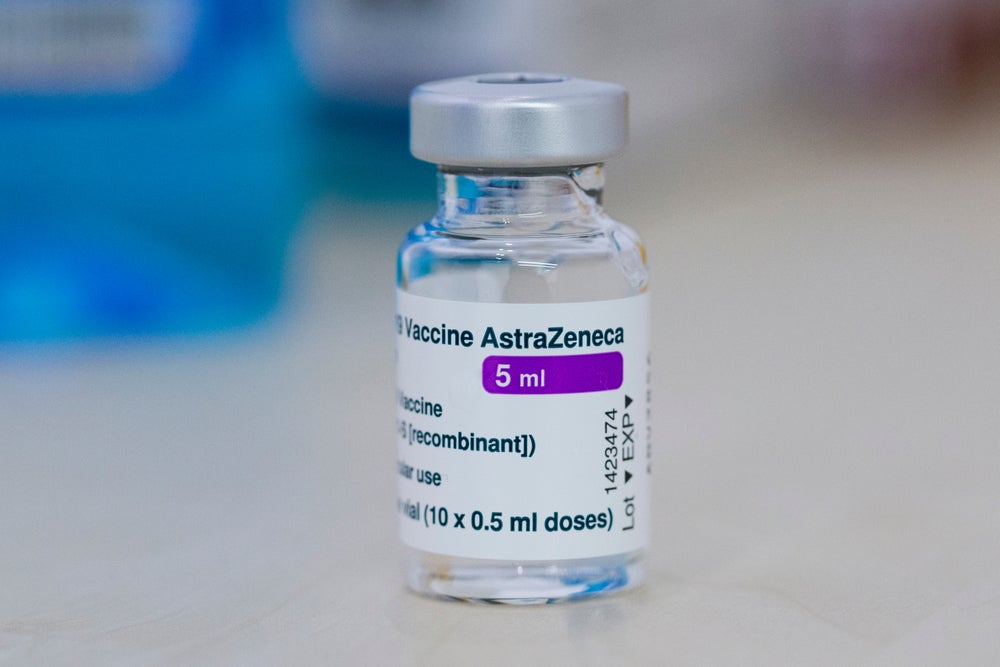
The Danish National Board of Health has temporarily paused the roll-out of the AstraZeneca/Oxford Covid-19 vaccine.
This is a precautionary measure linked to reports of blood clots developing in individuals shortly after they received the vaccine, including the death of one individual in Denmark from blood clots.

Discover B2B Marketing That Performs
Combine business intelligence and editorial excellence to reach engaged professionals across 36 leading media platforms.
As a result, the Danish Medicines Agency is investigating the link between AstraZeneca/Oxford vaccine and blood clots during the vaccination pause and will reassess the situation in a fortnight.
“It is important to emphasise that we have not opted out of the AstraZeneca vaccine, but that we are putting it on hold,” said Danish National Board of Health director Søren Brostrøm. “There is good evidence that the vaccine is both safe and effective. But both we and the Danish Medicines Agency have to react to reports of possible serious side effects, both from Denmark and other European countries. It shows that the monitoring system works.”
Danish Medicines Agency unit manager Tanja Erichsen said: “We do not yet know whether the blood clots and the Danish death are due to the vaccine, but it must now be thoroughly examined for safety.”
As a result, all bookings for the AstraZeneca/Oxford Covid-19 vaccine – otherwise known as Covid-19 Vaccine AstraZeneca – in Denmark will be cancelled. Individuals who had have their first dose of the AstraZeneca/Oxford vaccine will have to wait for their second dose for the time being.

US Tariffs are shifting - will you react or anticipate?
Don’t let policy changes catch you off guard. Stay proactive with real-time data and expert analysis.
By GlobalDataIn response, an AstraZeneca spokesperson said: “Patient safety is the highest priority for AstraZeneca. Regulators have clear and stringent efficacy and safety standards for the approval of any new medicine, and that includes COVID-19 Vaccine AstraZeneca.”
“The safety of the vaccine has been extensively studied in Phase III clinical trials and peer-reviewed data confirms the vaccine has been generally well tolerated.”
The European Medicines Agency (EMA) is also reviewing the relationship between the AstraZeneca/Oxford Covid-19 vaccine and blood clots, after Austria and six other EU countries suspended the use of a certain batch of AstraZeneca/Oxford vaccine, known as batch ABV5300, after blood clot concerns.
An EMA release stated the decision was made after an individual was diagnosed with the formation of blood clots within blood vessels and died 10 days after inoculation, while another was hospitalised with pulmonary embolism after being vaccinated.
The EMA stated there were two other cases of thromboembolic events from the batch. The regulator also noted that as of 9 March, 22 cases of thromboembolic events has been reported among three million people vaccinated with the AstraZeneca/Oxford Covid-19 vaccine in the European Economic Area, which includes the 27 EU member states, as well as Iceland, Liechtenstein and Norway.
However, the EMA emphasised that “there is currently no indication that vaccination has caused these conditions, which are not listed as side effects with this vaccine”.
The Austrian Federal Office for Safety in Health Care (BASG) said in a statement: “Currently, there is no evidence of a causal relationship with vaccination. Based on the known clinical data, a causal relationship cannot be established, as thrombotic events in particular are not among the known or typical side effects of the vaccine in question.
“According to current knowledge, the clinical data do not show any worrying data or signals in this respect compared to placebo. The immediately initiated international analysis of side effect reports also shows no accumulation of similar case reports so far.”




